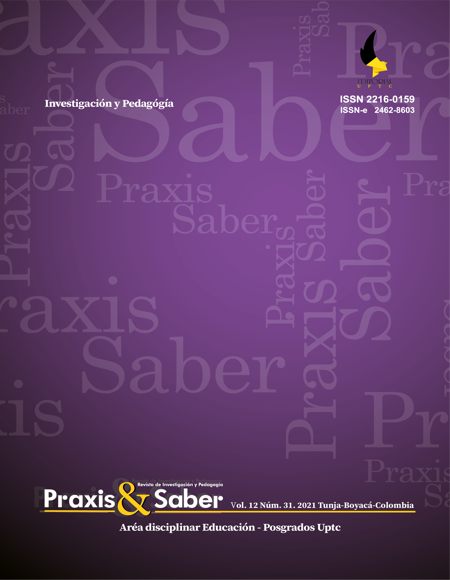Feed and neurodegenerative diseases: a socio-scientific issue for developing argumentative skills

Abstract
The article shows the results of a research project whose objective was to promote the development of argumentative skills in a group of trainee teachers of the Chemistry degree program at the National Pedagogical University, through the design and application of a didactic unit on the implications of food chemistry in the development and prevention of the Parkinson’s disease [PD] as a socio-scientific issue. Activities such as open questions, discussion forums, and search for possible nutritional alternatives in the prevention and treatment for the PD were implemented. In each stage, the level of argumentation was
identified, and the conceptual content of each argument was analyzed. It should be noted that the students were able to achieve a higher level of argumentation than the initial one by using the knowledge acquired in the solution and search for alternatives through active and reflective learning. They built arguments based on theoretical and experimental grounds on different aspects of this controversy.
Keywords
discourse, education, nutrition, biochemistry, nervous system disease
References
Costamagna, A. (2001). Mapas conceptuales como expresión de procesos de interrelación para evaluar la evolución del conocimiento de alumnos universitarios. Enseñanza de las Ciencias: Revista de Investigación y Experiencias Didácticas, 19(2), 309-318. https://www.raco.cat/index.php/Ensenanza/article/view/21749
Enfermedad ParkinsonCSC. (2019). Enfermedad de Parkinson [Video]. YouTube.
https://www.youtube.com/watch?v=kTqnQzFO-Bw&t=71s
Fernández, R., Gasca, C., Sánchez, Á., & Obeso, J. (2016). Actualización en la enfermedad de Parkinson. Revista Médica Clínica Las Condes, 27(3), 363-379. https://doi.org/10.1016/j.rmclc.2016.06.010
Garcés, M. (2016). Estudio sobre las enfermedades neurodegenerativas en España y su impacto económico y social. Gobierno de España.
HablemosClaroTV. (2017). Alimentos funcionales [Video]. Youtube.
https://www.youtube.com/watch?v=wnLBEFJ1Av0
Hernández, R., Fernández, C., & Baptista, P. (2017). Metodología de la investigación. McGraw Hill.
Jiménez-Aleixandre, M., & Erduran, S. (2007). Argumentation in Science Education: An Overview. En M. Jiménez-Aleixandre, & S. Erduran (Eds.), Argumentation in Science Education (pp. 3-27). Science & Technology Education Library.
Martín-Gámez, C., & Erduran, S. (2018). Understanding argumentation about socioscientific issues on energy: a quantitative study with primary pre-service teachers in Spain. Research in Science & Technological Education, 34(4), 463-483. https://doi.org/10.1080/02635143.2018.1427568
Mesa, L. (2010). Propuesta estrategia educativa para familiares y/o cuidadores de pacientes con enfermedad de parkinson ejecutada por profesionales del area de nutrición y dietética [Trabajo de grado, Pontificia Universidad Javeriana]. Repositorio Institucional - Pontificia Universidad Javeriana. https://repository.javeriana.edu.co/bitstream/handle/10554/8792/tesis737.pdf
Osborne, J., Erduran, S., & Simon, S. (2004). Enhancing the quality of argument in school science. Journal of Research in Science Teaching, 41(10), 994-1020. https://doi.org/10.1002/tea.20035
Posada, J. (2015). La argumentación y su rol en el aprendizaje de la ciencia. Revista Tesis Psicológica, 10(1), 146-160.
Reguant, M., Vilà, R., & Torrado, M. (2018). La relación entre dos variables según la escala de medición con SPSS. Revista d’Innovació i Recerca en Educació, 11(2), 45-60.
Sadler, T. (2009). Situated learning in science education: socio-scientific issues as contexts for practice. Studies in Science Education, 45(1), 1-42. https://doi.org/10.1080/03057260802681839
